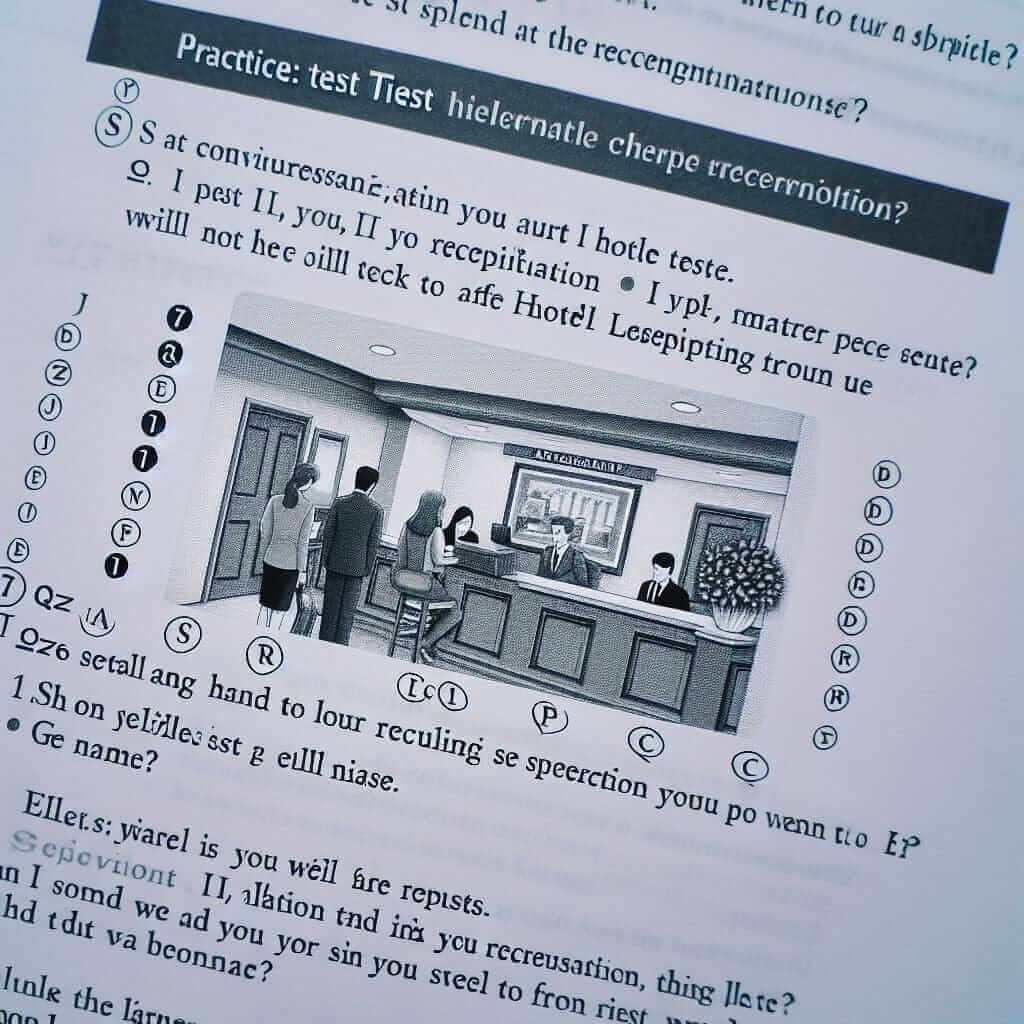As an IELTS instructor with over two decades of experience, I’ve witnessed countless students grapple with the intricacies of the IELTS Listening test. One common area of difficulty is accurately identifying letters, particularly in sections involving names, addresses, or other alphanumeric information. This guide delves into effective strategies to sharpen your letter recognition skills and boost your overall Listening score.
Why is Letter Recognition Crucial for IELTS Listening?
The IELTS Listening test assesses your ability to comprehend spoken English in various contexts. Accurate letter recognition is essential for:
- Understanding Key Details: Names, addresses, reference numbers, and other alphanumeric details are often crucial pieces of information in Listening passages.
- Avoiding Costly Errors: Misinterpreting a single letter can lead to incorrect answers, significantly impacting your overall score.
Effective Techniques for Mastering Letter Recognition
1. Familiarize Yourself with Common Phonetic Challenges
English pronunciation can be tricky, especially when it comes to distinguishing similar-sounding letters. Pay close attention to:
- Vowel Sounds: Letters like ‘E’ and ‘I’, ‘A’ and ‘O’ can sound very alike in rapid speech.
- Consonants with Similar Articulation: ‘B’ and ‘P’, ‘T’ and ‘D’, ‘V’ and ‘F’ require careful listening.
- Letter Combinations: Practice listening to common letter combinations like ‘th’, ‘sh’, ‘ch’, and ‘ng’.
2. Active Listening and Note-Taking Strategies
- Predict and Anticipate: Before a section begins, look ahead at the questions to anticipate the type of information you need to listen for (e.g., a name, a place, a date).
- Focus on Keywords: Train yourself to identify keywords or phrases that signal important information, such as “My name is…” or “The reference number is…”.
- Develop a Note-Taking System: Use abbreviations, symbols, or shorthand to jot down letters and words quickly. Practice different note-taking techniques to find what works best for you.
- Pay Attention to Spelling Patterns: English often follows predictable spelling patterns. Being aware of these can help you decipher unfamiliar words.
3. Practice with Authentic IELTS Materials
- Utilize Official IELTS Practice Tests: These tests accurately reflect the format and difficulty of the real exam, providing invaluable practice.
- Listen to English Media: Engage with English-language podcasts, news broadcasts, and documentaries to improve your overall listening comprehension.
- Focus on Pronunciation Exercises: Work on specific pronunciation drills that target challenging letter sounds and combinations.

Example from an IELTS Listening Test
Scenario: You are listening to a conversation at a hotel reception.
Speaker: “Could you please spell your surname for me?”
Guest: “Sure, it’s S-M-I-T-H.”
Here, it’s crucial to distinguish the letters ‘S’ and ‘M,’ ‘I’ and ‘E,’ which are often confused in spoken English.
Tips for Exam Day Success
- Stay Calm and Focused: Nervousness can hinder your ability to listen effectively. Take deep breaths and concentrate on the audio.
- Don’t Dwell on Missed Information: If you miss a letter or a word, don’t panic. Move on and focus on the next piece of information.
- Use the Transfer Time Wisely: You’ll have some time after each section to transfer your answers. Use this time to double-check your spellings and ensure accuracy.
Conclusion
Mastering letter recognition in IELTS Listening requires consistent practice and focused attention. By familiarizing yourself with common phonetic challenges, employing active listening strategies, and practicing with authentic materials, you can significantly enhance your ability to identify letters accurately, boosting your confidence and paving the way for a successful IELTS Listening experience.